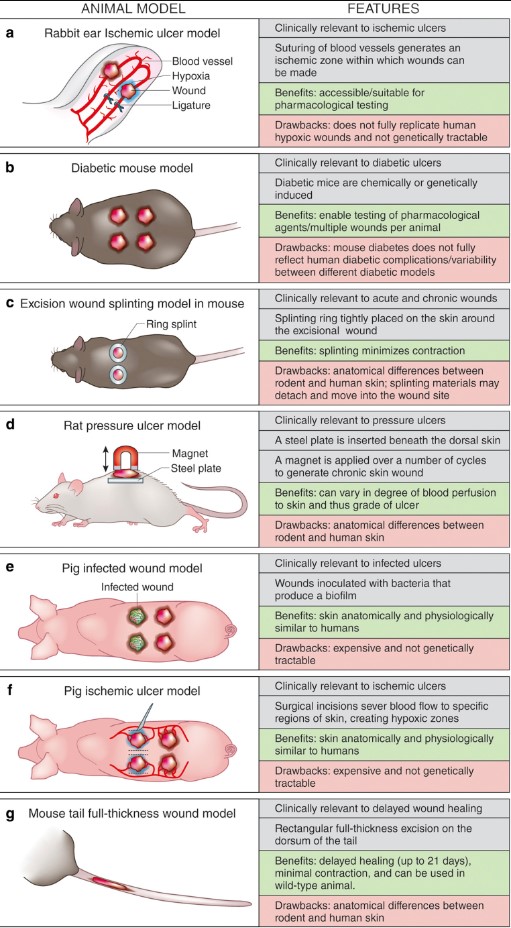Surgery Model Development Service
The use of animal models is crucial for advancing our understanding of rare diseases and developing effective drugs. Our company, with many years of experience in the industry, specializes in surgery animal model development services. We prioritize ethical considerations and animal welfare in all aspects of our surgery animal model development. Our company adheres to strict ethical guidelines and regulations, ensuring that the animals used in our models are treated with care and respect.
What is Surgery Animal Model?
To assess the therapeutic efficacy of a lead compound on a disease, it is necessary to utilize animal models that replicate human diseases. These animal models, which can be small animals, large animals, or even nonhuman primates, are induced to develop disease states similar to those found in humans through surgical procedures, administration of drugs, or exposure to specific physical, chemical, or biological pathogenic factors.
Surgical animal models, specifically, involve the use of surgical techniques to replicate diseases in animals, thereby creating a specific disease state that mimics human diseases. This approach is extensively employed in the study of physiological and pathological mechanisms, as well as in the discovery of new drugs and the evaluation of their efficacy.
 Fig.1 Animal models of wound healing. (Ayman G., et al., 2018)
Fig.1 Animal models of wound healing. (Ayman G., et al., 2018)Our Services
Surgery animal models play a vital role in advancing rare disease drug research and development. They provide a platform for drug safety evaluation and pharmacokinetics research. Our company, with its extensive experience and expertise, offers surgery animal model development services that contribute to this important area of scientific research. Through customized models, ethical considerations, expert collaboration, cutting-edge technology, and comprehensive data analysis, we strive to enhance the accuracy and relevance of surgery animal models.
- Animal Species for Model Development
-Mouse
-Rat
-Rabbit-Pig
-Dog-Monkey
-Cat-Zebrafish
-Others - Methods of Surgery Model Development
- Vascular catheterization: carotid artery (CAC) and jugular vein (JVC)
- Non-vascular catheterization: intracerebroventricular (IVC), intrathecal, bile duct, and lymph duct
- Alzet Pump implantations: subcutaneous or internal pumps
- Cardiac perfusion: mouse and rats
- Soft tissue surgeries: splenectomy, thymectomy, hepatectomy, vasectomy, vagotomy, ovariectomy, pyloroplasty, sub-renal capsule injection, and double carotid occlusion
- Types of Surgery Models
- Circulatory System Disease Development Service
-Atherosclerosis Models
-Myocarditis Models
-Hyperlipidemia Models
-Hypertension Models-Heart Failure Models
-Cardiomyopathy Models
-Pulmonary Hypertension Models
-Anemia Models - Digestive System Disease Development Service
-Hepatic Fibrosis Models
-Acute Pancreatitis Models-Inflammatory Bowel Disease Models - Immune System Disease Development Service
-Psoriasis Models
-Allergic Encephalomyelitis Models-Rheumatoid Arthritis Models
-Systemic Lupus Erythematosus Models - Motor System Disease Development Service
-Bone Defect Models
-Osteoporosis Models-Osteoarthritis Models - Nervous System Disease Development Service
-Depression Models
-Spinal Cord Injury Models-Migraine Models - Respiratory System Disease Development Service
-Asthma Models
-Pulmonary Arterial Hypertension Models-Tracheal Stenosis Models
-Silicosis Models - Urinary System Disease Development Service
-Nephrotic Syndrome Models-Glomerulonephritis Models
- Endocrine System and Metabolic Disease Development Service
-Hyperlipidaemia Models
-Hypothyroidism Models-Obesity Models
-Hyperuricemia Models - Ophthalmological Disease Development Service
-Ocular Autoimmune Diseases Models-Neovascular Glaucoma Models
- Integumentary System Development Service
- Infectious Disease Development Service
- Rare Cancer Development Service
- Circulatory System Disease Development Service
Why Choose Us?

Our company understands the unique requirements of each research project. Our team of experts collaborates closely with clients to develop customized surgery animal models tailored to their specific needs. Whether it involves replicating a rare disease condition or testing a novel surgical technique, we can create animal models that accurately represent the desired scenario. If you are interested in our services, please feel free to contact us for more details and quotation information of related services.
Reference
- Ayman G., et al., Research Techniques Made Simple: Animal Models of Wound Healing. Journal of Investigative Dermatology (2018), 2095-2105.
All of our services and products are intended for preclinical research use only and cannot be used to diagnose, treat or manage patients.
